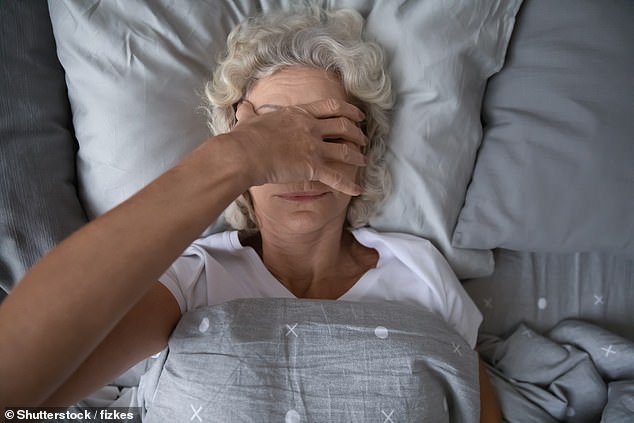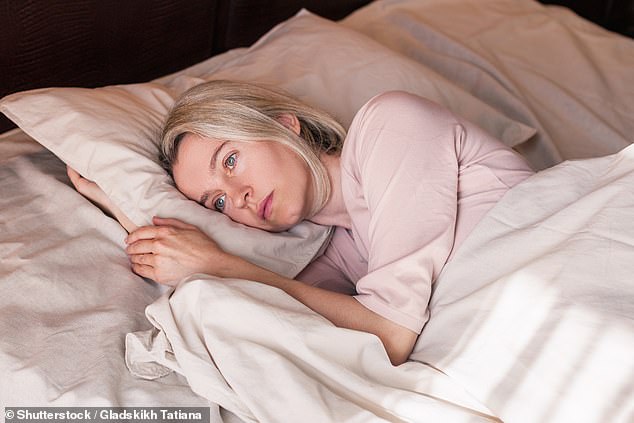Women aged 40 to 60 sleep an average of only 6 hours and 36 minutes a night due to frequent insomnia and night sweats, a study shows.
A survey of 1,000 women in this age group reveals the harsh reality of menopause, with interrupted sleep and joint pain emerging as the two most prominent problems.
The women surveyed reported that they are affected by sleeping difficulties and insomnia for an average of 10 days a month.
They said they regularly wake up between 3 and 4 a.m., causing severe levels of exhaustion and fatigue.
A fifth of women said the impact of lack of sleep and other menopause symptoms has strained relationships, leading to increased arguments with their partners or colleagues.
Women aged 40 to 60 sleep an average of just 6 hours and 36 minutes a night due to frequent insomnia and night sweats, study shows (file image)
The report also found that women in this age group sleep just 6 hours and 36 minutes a night, below the 8 hours recommended by the NHS.
This means that over two decades, exhausted women going through perimenopause and menopause could sleep 17.5 percent less than recommended, losing the equivalent of 425 days of sleep over 20 years.
The most affected are women in their fifties, who sleep on average only 6 hours and 12 minutes a night, and one in five regularly sleeps only 5 hours.
Other common symptoms include feelings of emotional flattening, joint pain, mental confusion, and irrational thoughts.
The survey, commissioned by sleep technology company Simba, also showed that women regularly experience lower libido, general anxiety and heart palpitations during this stage of life.
Lisa Artis, deputy executive director of simba Charity partner The Sleep Charity said: “Menopause isn’t just about the occasional hot flash, it’s a rollercoaster of physical and mental symptoms.”

The most affected are women in their fifties, who sleep on average only 6 hours and 12 minutes a night, and one in five regularly sleeps only 5 hours (file image)
“Although many people think that night sweats are the main characteristic of menopause, our research shows that women struggle daily with a variety of symptoms.
‘These are not just minor inconveniences.
“Women could spend up to a third of their midlife feeling disconnected from their emotions, struggling with anxiety and dealing with extreme fatigue.
‘And it’s happening month after month.
‘This is a monumental cost to people’s physical and mental health.
“The hard truth is that women navigate their work, family life and relationships while managing serious and often invisible symptoms that undermine their health and well-being, requiring greater recognition, support and effective solutions.”
Select Simba products have the ‘M-Tick’, a menopause-friendly label designed to help women easily identify products that can help them with symptoms.


